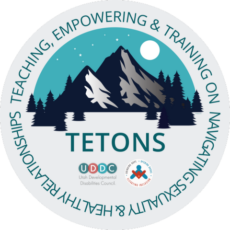
Talking About Sexuality and Supporting Individuals with Intellectual and Developmental Disabilities
It’s important to acknowledge that individuals with intellectual and developmental disabilities (I/DD) have their own thoughts and feelings about sexuality, just like everyone else. However, many professionals may feel uncertain about discussing this topic, sometimes believing that sex education isn’t necessary for individuals with I/DD. This approach can unintentionally lead to misunderstandings and isolation.
Why Talk About Sexuality?
- Everyone Deserves Education: All individuals, including those with I/DD, need accurate information about sexuality. Many learn from inaccurate sources, like the media, which can be misleading.
- Combat Isolation: People with I/DD often lack informal learning experiences that occur in social settings. Conversations about relationships and sexuality are essential for their understanding.
- Statistics Matter: Research highlights significant disparities:
-
-
- Sexually Transmitted Infections (STIs): In a study of middle and high school students, 8% of boys with low cognitive ability had been exposed to an STI, compared to 3% of those with average intelligence. For girls, 26% of those with cognitive impairments reported having an STI, versus 10% of their peers.
- Unplanned Pregnancies: Nearly 40% of cognitively impaired teenage girls had become pregnant, more than double the 18% rate for teenage girls without disabilities.
- Increased Vulnerability: Individuals with I/DD are 7 times more likely to be sexually abused than those without I/DD. This highlights the importance of teaching them about healthy relationships and boundaries, empowering them to say “no” to unwanted touch.
-
You Can Make a Difference
If you’re unsure how to approach sexuality education, you’re not alone. Many caregivers feel the same way. We invite you to take our TETONS “Navigating Healthy Relationships for Safe Outcomes” and “Sexual Wellness and Abuse Prevention” courses. These courses provide accurate, practical resources to help you feel more confident discussing these important topics. Utahparentcenter.org/TETONS has more information and a calendar of upcoming classes.
Remember, knowledge is power, and everyone deserves access to it. By opening the dialogue, you can positively impact the lives of those you care for.
Citations:
- Cheng, M., & Udry, J. (2005). Sexual behaviors of physically disabled adolescents in the United States. Journal of Adolescent Health, 31, 48-58
- Jones, K. H., Woolcock-Henry, C. O., & Domenico, D. M. (2005). A wake-up call: Pregnant and parenting teens with disabilities. International Journal of Special Education, 20(1), 92-104
- Shearer, D. L., Mulvihill, B. A., Klerman, L. V., Wallander, J. L., Hovinga, M. E., & Redden, D. T. (2002). Association of early childbearing and low cognitive ability. Perspectives on Sexual and Reproductive Health, 34(5), 236-243
- Source: Bureau of Justice Statistics, National Crime Victimization Survey, Special Tabulation






